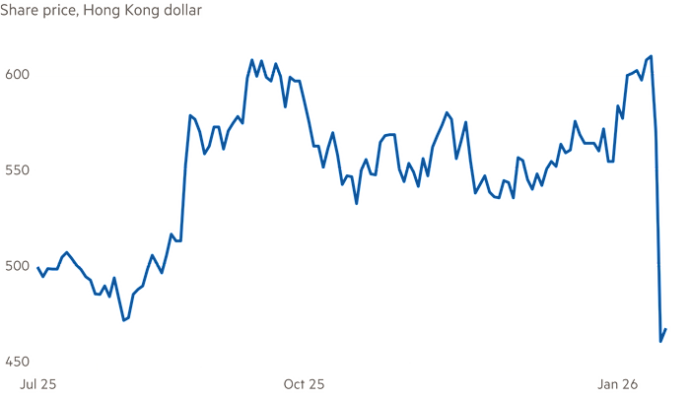Unlock the Editor’s Digest for free
Roula Khalaf, Editor of the FT, selects her favourite stories in this weekly newsletter.
Chinese AI chipmaker Cambricon posted a record profit in the first half of the year, as it benefits from a surge in demand from companies including ByteDance for domestically made semiconductors to replace Nvidia’s chips.
The Beijing-based company on Tuesday reported a Rmb1bn ($140mn) profit in the first six months, compared with a loss of Rmb533mn the previous year. It recorded revenues of Rmb2.9bn, a 44-fold rise from 2024.
Cambricon’s share price has doubled in the past month, pushing its market capitalisation to Rmb580bn, after Chinese AI company DeepSeek unveiled an updated model compatible with domestically made chips.
Its stock rose by 5 per cent on Wednesday to Rmb1,391, as investors bet that Cambricon would benefit from Beijing’s push to support the local AI chip ecosystem. Beijing has instructed major AI firms, including the large internet companies ByteDance and Tencent, to reduce their dependence on Nvidia’s technology.
The majority of Chinese AI labs rely on the US tech giant for training large language models, but are increasingly using rival local chips for inference — the process of using the models for tasks such as generating responses to chatbot inquiries.
Cambricon is a small player in comparison to Huawei, its main rival in developing AI chips for China. It holds an estimated 3 per cent of the Chinese AI chip market, according to analysis by Bernstein, in part due to its limited fabrication capacity.
Cambricon stated in its results that it has improved its inference software platform, enabling customers to run AI models more easily on its chips. The company is now seeking to raise up to Rmb4bn in a follow-on stock offering to fund investment in its AI chips and software for LLM training.
Lin Qingyuan, a semiconductor analyst at Bernstein, wrote in a note to clients that Cambricon was the “best alternative to Huawei”.
“We continue to see Cambricon’s commercial momentum significantly improve, as the addressable market for China AI fabless continues to ramp up post-DeepSeek and the ban on Nvidia chips,” he wrote.

